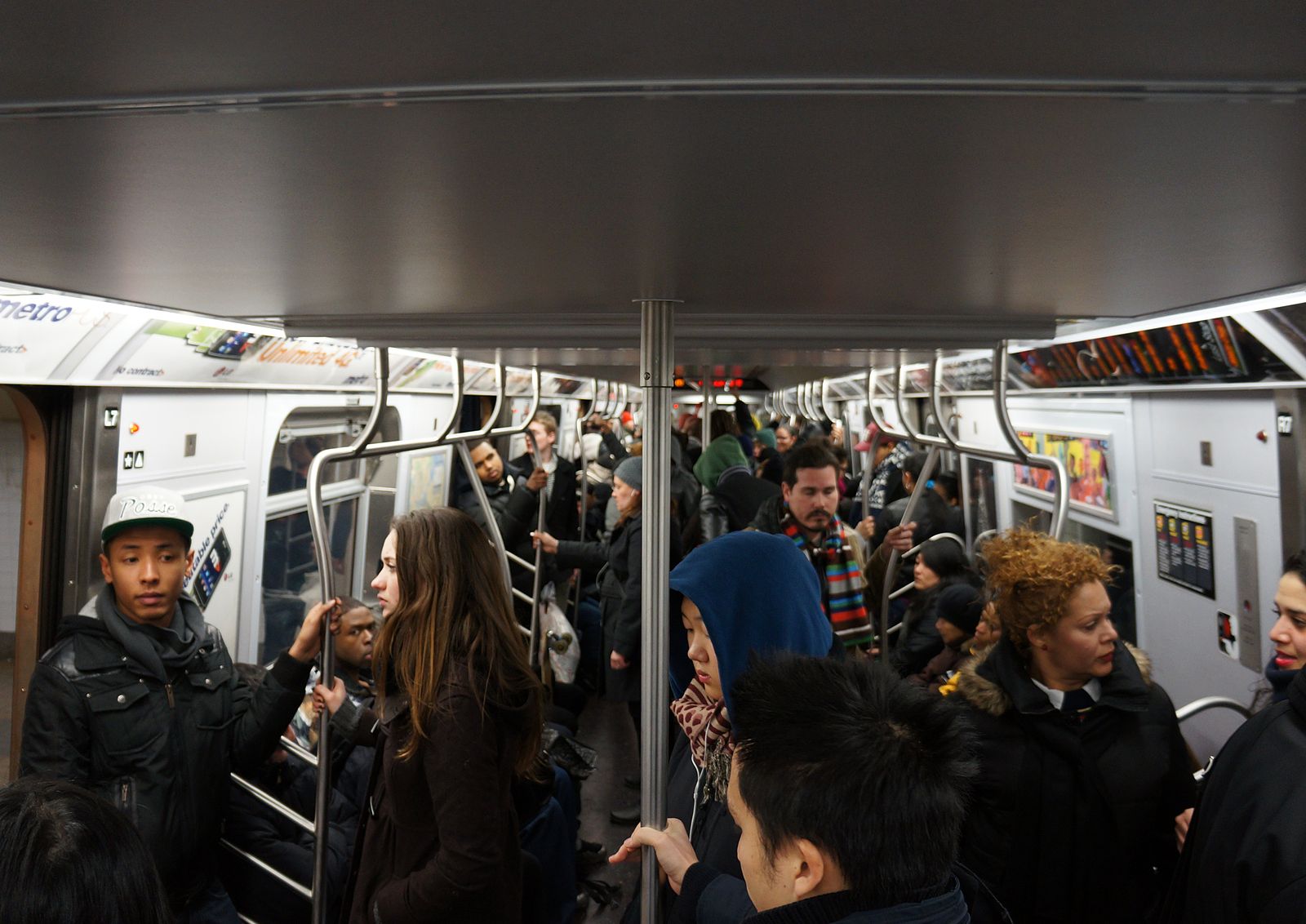Yesterday Wired published an article detailing Silicon Valley celebrity Elon Musk's thoughts on public transit. What happened next is worth a closer look.
Transit "sucks," said Musk, because it puts him in close proximity to scary people "who might be a serial killer." And that's why everyone should travel everywhere in their own vehicles, he says.
On Twitter, transit maven Jarrett Walker pointed out that in light of Musk's abhorrence of sharing space with other people, his transportation concepts should be viewed as examples of "elite projection." Musk thinks that if he can invent a service that meets his personal wants and needs, he'll solve society's transportation problems. But when your solution is personalized travel, it's never going to work for everyone in geographically constrained cities.
So did Musk have a rational response to Walker's critique? Or a well-reasoned argument for personalized transport as a solution for crowded cities where space is limited?
You be the judge:
You’re an idiot
— Elon Musk (@elonmusk) December 15, 2017
It's telling that Musk is so sensitive to criticism and yet had no substantive rejoinder to Walker's analysis.
Musk must not be accustomed to being challenged. And who can blame him? Most of the press he receives is fawning hero worship.
The appeal of Elon Musk's transportation ideas is their audacity. Who wouldn't want to bypass traffic on some kind of underground tube. Or travel hundreds of miles in a few minutes. That sounds amazing.
Elon Musk -- who got rockets to land backwards -- is telling us it's possible. So cast all your skepticism aside.
But Musk's transportation ventures should be getting much more scrutiny.
His Hyperloop offshoot has government agencies in multiple states spending time and effort on bids to team up on implementation. But a Hyperloop has never been tested with human subjects. There's not even a completed "pod" to transport people.
Then there's the Boring Company, the companion venture that will purportedly revolutionize one of the most complex tasks in engineering thanks to the ingenuity of Musk and his team. Musk says he can speed up tunnel drilling by a factor of ten.
But in one of the better pieces of reporting on Musk's transportation ventures, Wired checked in on the Boring Company, and found that a lot its workforce now consists of SpaceX engineers working part-time. One of those engineers told the City Council in Hawthorne, outside L.A., that the company isn't doing anything unconventional with the used tunnel-boring machine it purchased. It's just learning the ropes.
Even if you believe that Musk will one day reinvent tunneling, those tubes won't be good for much if they're going to shoot people around in personalized pods or car sleds. Sooner or later, there won't be enough space to scale up those individualized vehicle systems.
The tunnels will really only be useful if they're carrying large, shared transit vehicles full of -- gasp -- other people.






